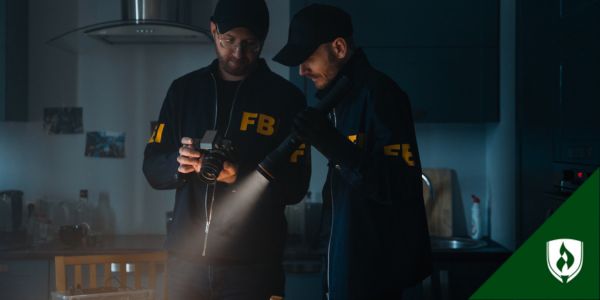
When someone tells you that they have a degree in Criminal Justice, you might naturally assume they’re working or plan to work as a police officer, but that’s a pretty big assumption.
While it’s true that becoming a police officer is a common career path for Criminal Justice graduates, the reality is that a Criminal Justice degree can prepare you for a variety of jobs within the legal system and beyond.
So, what can you do with a Criminal Justice degree, exactly? We did a little research to give you a better understanding of the criminal justice careers this degree could lead you to. Keep reading to familiarize yourself with nine criminal justice careers available to those with the right education. And if you're considering studying criminal justice, don't forget to explore our article on "What Should I Know Before Studying Criminal Justice?" for important insights and considerations before embarking on this educational journey.
9 Criminal justice degree jobs you might not know about
We used real-time job analysis software to analyze more than 2,500 job postings from the past year that required a Criminal Justice degree.1 The data helped us identify the nine most in-demand criminal justice careers.
Here’s what we found:
1. Police patrol officer
Duties: Police patrol officers are tasked with patrolling assigned areas, enforcement of local laws and ordinances, traffic regulation and crowd control for large events.
Why it made the list: This common law enforcement role may seek out Criminal Justice graduates, particularly for those seeking leadership roles.
2. Security guard
Duties: Security guards are responsible for the monitoring and maintaining of a facility’s security. Additionally, they are tasked with writing reports of daily activities or irregularities and working with public safety officials in the event of an emergency.
Why it made the list: If a building houses something valuable, odds are you’ll find at least a few security guards patrolling the area. While many security guard positions don’t require a degree, Criminal Justice degree holders should be able to flourish in these roles and work their way toward higher-level managerial security positions.
3. Private detective or investigator
Duties: Private detectives and investigators conduct investigative research on subjects (often involving fraud or legal misrepresentations). They must document the information they’ve gathered and report on their findings to private individuals or businesses.
Why it made the list: Private investigators and detectives serve an important role in legal proceedings by bringing to light information that would be otherwise overlooked. Criminal Justice graduates are well versed in investigative techniques as well as criminal and privacy law, which makes them an ideal fit for this line of work.
4. Correctional officer
Duties: Correctional officers work in prisons or jails and are responsible for monitoring inmates for dangerous activities, inspecting cells for contraband, weapons or security issues and maintaining the overall security of the facility.
Why it made the list: It may not be the most glamorous occupation, but jails and prisons need well-trained corrections officers to ensure both inmate and public safety are maintained.
5. First-line police supervisor
Duties: The primary responsibility of first-line law enforcement supervisors is the coordination and supervision of subordinate officers during criminal investigations.
Why it made the list: These positions typically require multiple years of law enforcement experience and a solid educational background in criminal justice.
6. Postsecondary criminal justice and law enforcement teachers
Duties: Criminal justice postsecondary vocational teachers, are responsible for teaching students the fundamentals of the criminal justice system. These professionals educate and train students on topics like civil rights, criminal proceedings and how to act in dangerous scenarios encountered in the field.
Why it made the list: It takes firsthand experience to adequately train law enforcement professionals. This is an excellent option for any experienced professional in the field who is looking to train and develop the next generation of criminal justice professionals.
7. Criminal investigators and special agents
Duties: Criminal investigators and special agents work in specialized investigative roles within law enforcement. They may work as detectives where they gather evidence, interview suspects and pursue leads. These roles may be tailored to specific areas like narcotics or human trafficking.
Why it made the list: Criminal investigators and special agents are the members of the law enforcement community that do the deep investigative legwork that helps bring criminals to justice. These are positions within law enforcement that typically require additional experience, education and training.
8. Probation officer
Duties: Probation officers work with offenders to ensure they’re meeting the terms specified in their probation or parole agreements. This means they’re responsible for administering drug tests, interviewing and reporting on the progress of offenders and also assisting them in finding help for any mental health or substance abuse issues.
Why it made the list: Part correctional officer, part social worker; this position requires a strong knowledge of the legal system and how to interact with offenders.
9. Security manager
Duties: Security managers are responsible for not only maintaining the security of people, places or things, but also the management of lower-level security personnel. This includes training new security officers and assuming a hands-on role in the planning and implementation of security standards, policies and procedures.
Why it made the list: The next step in a private-security career, security managers need a strong understanding of criminal behavior and identifying security issues—which aligns very well with what is learned in a Criminal Justice degree program.
Is a career in criminal justice in your future?
Now you know that earning a Criminal Justice degree isn’t a dead end. The knowledge and hands-on training you’ll receive from a reputable program can be an asset for a variety of criminal justice careers. If you're ready to learn more about what can you can expect to take on in the Rasmussen University Criminal Justice program, check out our article, check out our articles, "8 Great Crime Museums Justice Studies Students Will Love" and "What is a Crime Victim Advocate? The Journey to Justice Has a Guide".
1Burning-Glass.com (analysis of 2,638 online job postings, Jan. 11, 2017 – Jan. 10, 2018)
2Bureau of Labor Statistics, U.S. Department of Labor, Occupational Employment Statistics, [accessed June, 2022]. www.bls.gov/oes/. Information represents national, averaged data for the occupations listed and includes workers at all levels of education and experience. Employment conditions in your area may vary.
Note: The Criminal Justice Programs at Rasmussen University are not designed to meet the educational requirements for professional licensure or certification in any states. This means that these program are not intended to lead to law enforcement, corrections, or other licensed careers. For example, these program do not meet the standards established by the Minnesota Peace Officer Standards and Training (POST) Board for persons who seek employment as a peace officer in Minnesota, and do not meet the requirements to Certified Law Enforcement or Tribal Law Enforcement careers in Wisconsin.
Each federal, state, or local agency determines its own requirements for licensure of law enforcement careers, and may change these requirements at any time. Licensed law enforcement careers include police officer, corrections officer, parole officer, crime scene investigator, and other positions.
Minimum educational standards for licensure in these careers range from a high school diploma to a college degree, and can vary widely (even within the same state). Some agencies require graduation from an agency-approved academic program or training academy. These programs are NOT a training academy or approved program with any federal, state, or local agency. Other non-academic requirements are also required for licensure, which may include additional training, experience, graduation from an academy, physical fitness standards, background checks (certain results are often disqualifying), and other requirements.
Before enrolling, it is important to understand whether licensure is required for a desired career by consulting the appropriate federal, state, or local agency requirements.




